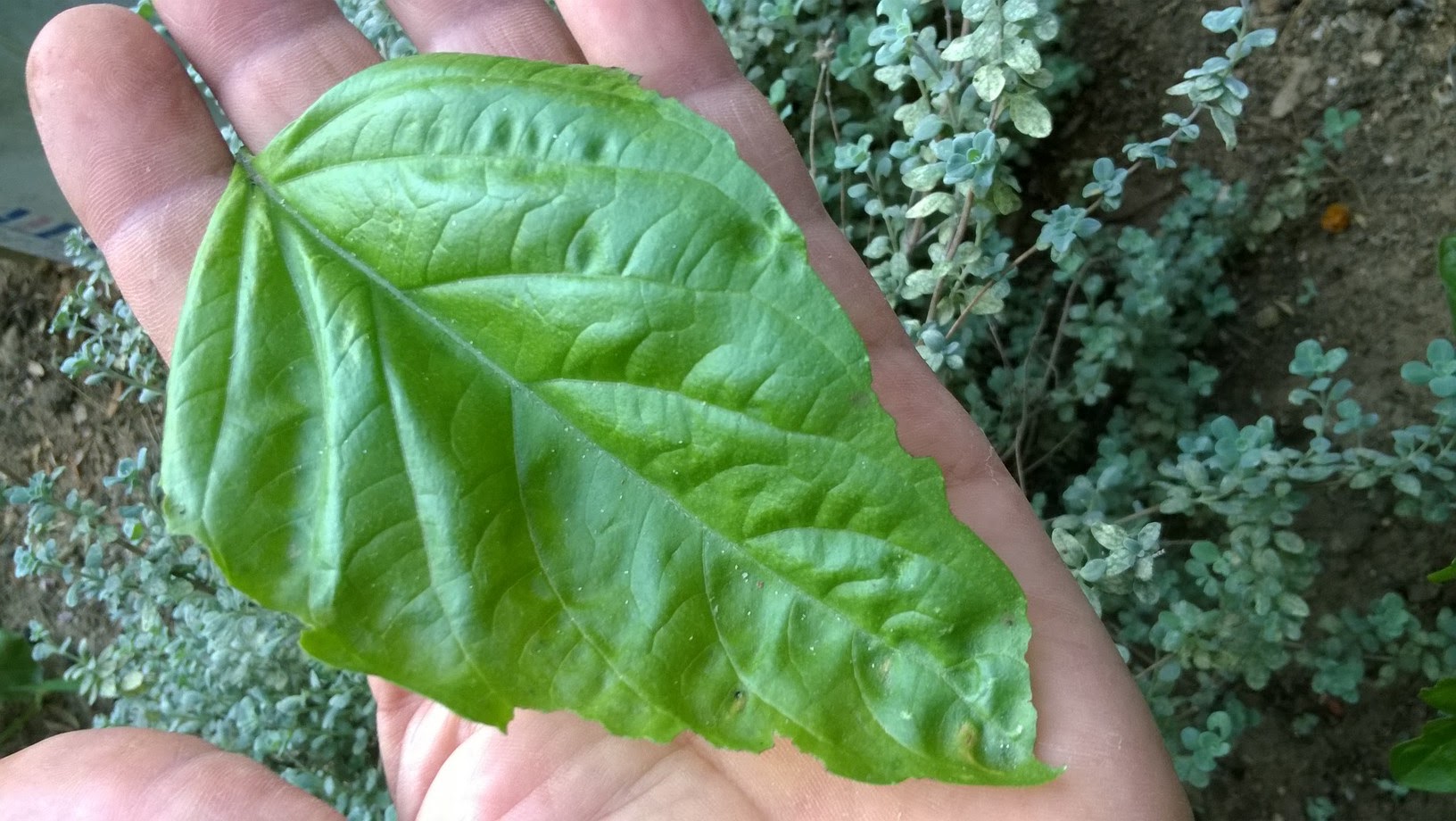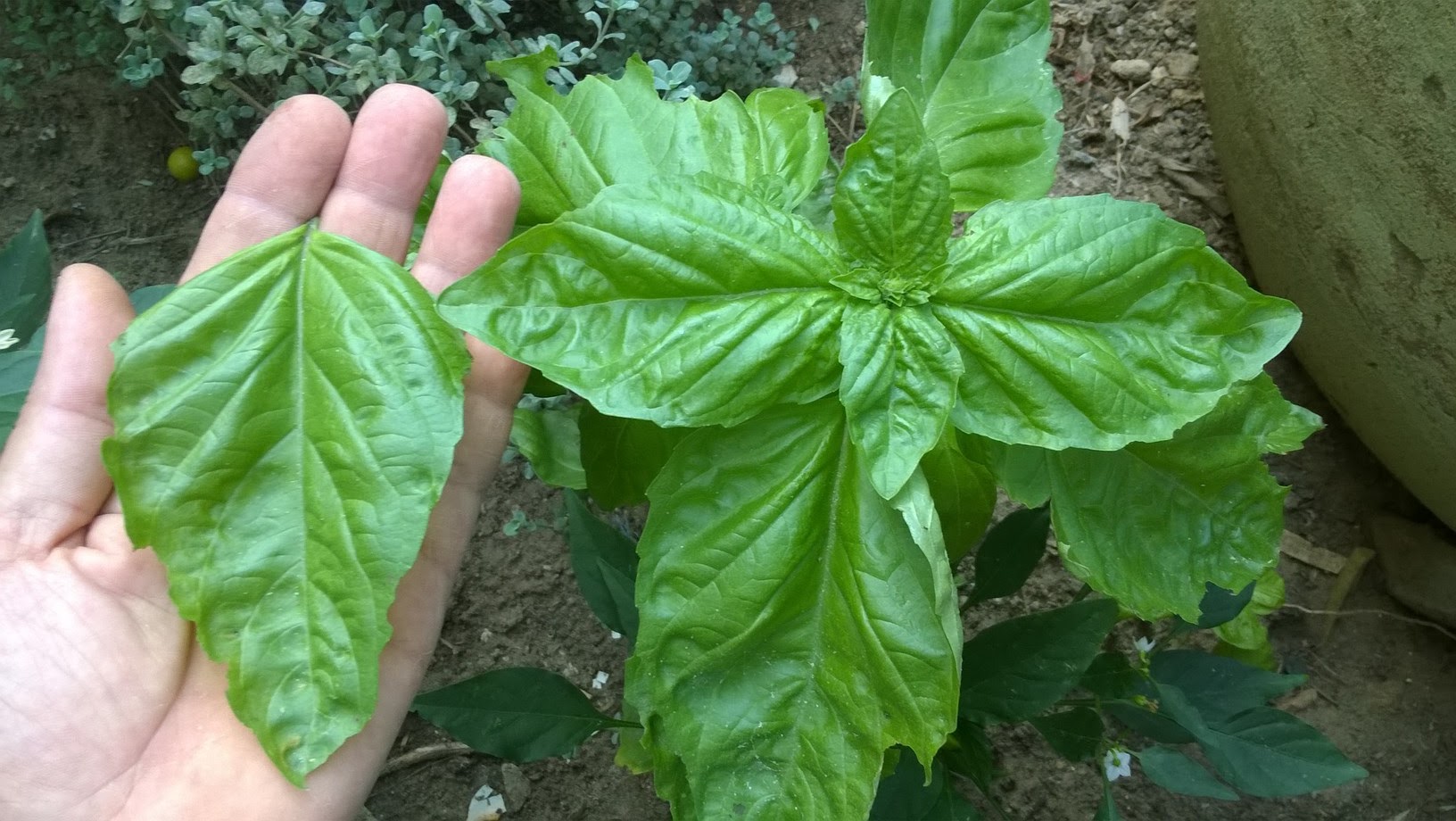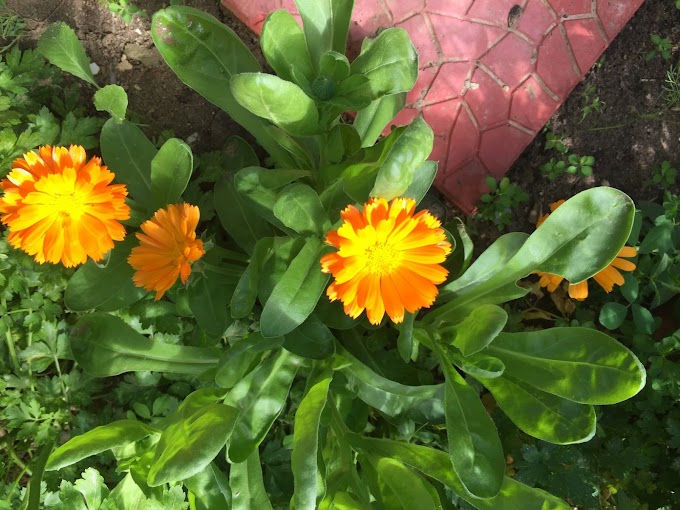Basil History
Basil is known as one of the oldest herbs known to the mankind, basil's healing and healthful properties have been the most treasured knowledge across the world. A leafy, green herb, with an intense flavor that is a staple in Mediterranean cooking. Basil is called by many names like sweet basil or even Thai basil, but all of its common names refer to the herb's botanical name, "Ocimum basilicum". Basil is a member of the large mint family, or Lamiaceae family, along with other culinary herbs like rosemary, sage, and lavender. Basilic is widespread over Asia, Africa and Central and Southern America, it appears to have its center of diversity in Africa. Basil was probably first put to cultivation in India. Herbaceous plant, coming from India and Indonesia, with its characteristic aromas, it is used as a condiment for foods, in ayurvedic medicine, herbal medicine and cosmetics. There are many rituals and beliefs associated with sweet basil. The French call basil "herbe royale,". It is a symbol of love in present-day Italy, but represented hatred in ancient Greece, and European lore sometimes claims that basil is a symbol of Satan. African legend claims that basil protects against scorpions.Basil came to America via the Massachusetts Bay Colony where it was introduced in 1621. From there its cultivation spread through the colonies. It has long been used to flavor food in the western world, but was used primarily for its aroma in India. Today it is most recognized for its influence in Italian and Thai cooking.
Basil is cultivated worldwide as an annual plant. Many varieties have different compositions and flavoring characteristics. Basil is strongly affected by environmental factors like temperature, geographic location, soil and amount of rainfall. Its thin branching root produces bushy stems growing from 1-2 feet high and bearing leaves of a purple hue, and two-lipped flowers, varying in color from white to red, sometimes with a purple tinge.
The word "basil" comes from the Greek βασιλεύς {basileus}, meaning "king" Legend says that it grew above the spot where St. Constantine and Helen discovered the Holy Cross. The Oxford English Dictionary quotes speculations that basil may have been used in "some royal unguent, bath, or medicine" Basil is still considered the "king of herbs". An alternative etymology has "basil" coming from the Latin word basilicus, meaning dragon and being the root for basilisk {legendary, venomous reptile}, but this likely was a linguistic reworking of the word as brought from Greece.
Basil is well known as a culinary herb, this aromatic herb has many varieties with different scents and flavors. This is the result of the essential oils that the plant produces in its leaves, which vary in their composition. Basil leaves show an intense green color on the upper side and a green-gray color in the bottom side. If you’re growing basil in your garden or at a window, cut basil leaves as needed for the kitchen from the top. The leaves grow back quickly. Basil is one of those plants that you can harvest from again and again, all summer long. It’s so awesome to be able to walk out the back door and harvest garden fresh herbs for cooking, and to be able to have a continuous harvest. The best time to harvest basil is when the plant has lots of leaves, but hasn’t started to flower yet. If your basil is already flowering, don’t worry You can still harvest the leaves also, plan to harvest your basil leaves when it’s not super hot out, and keep the leaves out of direct sun while harvesting to keep them from wilting.
The most aromatic leaves, sweet and fragrant, are the ones picked soon before blossoming, as they contain a higher quantity of oily substances determining the aroma, whereas the elder leaves tends to have a more piquant taste. Basil can be dried and used during months when it may not be available in some regions, but it is best when used fresh, as it will provide peak flavor. There are a number of types of basil, which differ in taste and smell. Sweet basil is the most commercially available basil used in Italian food. This aromatic herb has a strong clove scent because of its high concentration of the chemical agent eugenol.
The Use of Basil
Sweet basil is prominently featured in varied cuisines throughout the world including Italian, Thai, and Vietnamese . It is the king of herbs in Italy and mediterranean cuisine . Basil is one of the main ingredients in pesto "a green Italian olive oil and herb sauce" from the city of Genoa.Basil leaves are used in a variety of culinary preparations. In addition to the flavour, this culinary and aromatic herb is known to preserve and enhance the properties of the food. The benefits of basil leaves are quite a lot.
Basil is most commonly used fresh in cooked recipes. The fresh leaves are added at the last moment, as cooking quickly destroys the herb's distinct flavor. But today, basil is not only used as a food flavoring, but also in perfumery, incense, and herbal holistic remedies. Recent scientific studies have established that compounds the essential oil of basil plants possess potent antioxidant, antiviral, and antimicrobial properties. Basil continues to have diverse applications in modern kitchens and science labs.
. Medicinal Uses
Basil has been used as a remedy for common health problems for thousands of years. Basil's healing and healthful properties have been the most treasured knowledge across the world. Studies have shown that basil contains a wide range of essential oils, rich in phenolic compounds, and a wide array of other natural products including polyphenols such as flavonoids and anthocyanins.
Basil, is an effective way to both prevent and combat the damaging effects of everyday stressors. This wonderful aromatic herb is believed to promote long life and good health.
This herb is believed to help with:
. Good For Digestion
Basil can facilitate optimal digestion. Basil fortifies the digestive and nervous system, this wonderful herb can be a good remedy for headaches and insomnia, and the eugenol present in the leaves ensures anti-inflammatory action in the digestive tract. Basil helps balance acid within the body and restores the body's proper pH level.. Anti-inflammatory
Basil and its strong anti-inflammatory properties can be a cure to a variety of diseases. The powerful essential oils, including eugenol, citronellol and linalool, help lower inflammation through their enzyme inhibiting properties. The anti-inflammatory properties of basil may help lower risk of heart disease, rheumatoid arthritis and inflammatory bowel conditions. Consumption of basil could also soothe fever, headache, cold and cough.. Fights Depression
Basil's essential oil can help manage depression and anxiety too. The herb is believed to stimulate neurotransmitters that regulate the hormones responsible for inducing happiness and energy and Its anti-inflammatory and immune-boosting properties help manage stress too.. Skin Benefits
Basil's essential oil helps cleanse the skin, It also helps remove dirt and impurities that clog pores. The strong anti-inflammatory and antimicrobial properties of basil would help prevent formation of acne. Basil is amazing for your skin beauty. Basil is known to relieve anxiety, basil leaves or oil can be added to your bath. Its antiseptic properties will also keep your skin soft, supple and free from acne or other skin infections. Being having antiseptic properties, it is a useful natural remedy for multiple skin problems and conditions.. Fights free radical activity
This culinary herb contains a range of natural antioxidants, which can help protect body tissues against free radical damage. Basil contains two important water-soluble flavonoid antioxidants, known as orientin and viceninare. These potent antioxidants strengthen immune system, protect cellular structure, and delay effects of skin age.
. Supports Respiratory Health
The oils in basil; Eugenol, Cineole, and Camphene are antibacterial and can cure lung infections. It's also believed to help stop or reverse damage caused to the lungs due to tuberculosis and smoking.. Stimulates the appetite
Basil tea is said to help with dysentery, nausea and stomach distress due to gas.. Bites and Stings
Basil oil is so successful at relieving the pain and itching associated with insect bites or bee stings. You can apply some basil oil to the affected area, you can chew up a basil leaf and apply it to the bite for quick relief.. Promotes cardiovascular health
The high levels of magnesium in basil help muscles and blood vessels relax, improving blood flow.. Chemical components
The various basils have such different scents because the herb has a number of different essential oils that come together in different proportions for various varieties. The smell and flavour of basil vary upon the concentration of essential volatile oils present in the herb. Cinnamate, citronellol, geraniol, linalool, pinene and terpineol are some of the oils that one can find across all species of basil. And it is the presence of these oils that chiefly affect the medicinal benefits of basil leaves.. Antibacterial properties
Basil may have an antibacterial effect. Studies have demonstrated that basil has antibacterial properties, this may be because of the volatile oils it contains, which include estragole, linalool, cineole, eugenol, and limonene.Basil restricts the growth of numerous bacteria, This mean that adding fresh basil to your salad not only adds flavor, but it also helps reduce the number of harmful bacteria on your plate.
Basil leaves are used in a variety of culinary preparations. In addition to the flavour, the culinary herb is known to preserve and enhance the properties of the food.
From healthy gut to stronger immunity, benefits of basil leaves are so many. Basil is an excellent source of vitamin K, vitamin A (in the form of carotenoids such as beta-carotene), and vitamin C and a good source of calcium, iron, magnesium and omega-3.
Basil is considered a good companion plant for tomatoes, peppers and some other vegetables. Grown close together, basil keeps away common pests. Some gardeners insist that a basil plant in close proximity also improves flavor.
Basil is considered a good companion plant for tomatoes, peppers and some other vegetables. Grown close together, basil keeps away common pests. Some gardeners insist that a basil plant in close proximity also improves flavor.
Watch Companion Planting With Basil Video
Basil is ideal for attracting beneficial insects to your crop. Planting basil near your crops will attract a wide range of insects to the area. More bees visiting your plot will result in more pollination of your vegetable blooms and therefore lead to bigger yields.
DISCLAIMER: It is always good to seek the advice of your physician, homeopath, naturopath, or herbalist for professional advice in any matter related to your health. This article is for information purposes only.(alert-warning)
This web site is a participant in the Amazon Services LLC Associates Program, an affiliate advertising program designed to provide a means for sites to earn advertising fees by advertising and linking to amazon. Some of the links to products on this site are affiliate links. These are products that I've used or recommend based from homesteading experience. I do make a small commission (at no extra cost to you) from these sales.(alert-warning)






















